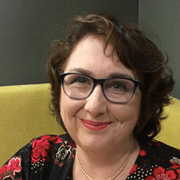‘A story which brings the past alive, getting the details right without compromising the story, is top of my wishlist.’

I’m sure we all must have a subconscious wishlist of criteria that we’re hoping will be met whenever we pick up a new work of fiction. In this HNSA interview, Pamela Hart, an award-winning historical novelist who also teachers creative writing, explains why it’s essential to keep current in the historical fiction we read (not just relying on old favourites), and how prizes such as the ARA Historical Novel Prize help to encourage this.
In your experience as a writer and reader of historical fiction what is its particular appeal?
I think it has two appeals – one is the beautiful gift of escapism, which I think is greatly underestimated, and the other is that it speaks to our desire to know who we are, both as humans, and more specifically in terms of the culture and world civilisation which we share. Knowing where we came from is important in knowing who we are, and who we might want to be. And, of course, there are the great stories!
How do you think a prize such as the ARA Historical Novel Prize helps to raise the profile of historical fiction in general?
It’s clear from awards like the Stella Prize that a well-run prize can lift the profile of a specific type of book. We’ve seen that happen with the Aurealis Awards, too, for speculative fiction. The bigger the prize, the more media it attracts. The generous nature of the ARA Historical Novel Prize means it’s likely to get attention, which is great for the genre! Shortlists are also great guides to readers and booksellers.
What difference would it make to an author’s creative life to win a significant sum of prize money?
Oh my goodness! For many people, it would enable them to cut back on or even stop full-time work and concentrate on writing for a good long while. And that ability to concentrate fully on their work is priceless. It changes the relationship with the book, and encourages a more fully developed and mature story to emerge in a much shorter time.
Prize money notwithstanding, what are the additional benefits of entering a high-profile writing competition for a published author?
Shortlists can be very influential for booksellers – if your book isn’t on the shelves, it won’t be found by new readers, so that aspect of prizes is, I think, underrated. But there is also a secondary benefit – by entering, you become more interested in the outcome, and more likely to read the shortlist, and generally to become more educated in what’s happening in the genre currently. I teach writing, and so often I find my students aren’t reading current books – they’re still stuck on the ones that made them love their genre in the first place. But to be a successful author you must know the current crop of books. (Note: I’m not talking about writing to a trend. But there are fashions and styles in publishing, and too often a good story is rejected because it’s presentation is old-fashioned.)
Which sub-genre of historical fiction are you pleased to see is eligible, and why do you feel it is important?
I’m particularly glad to see children’s and young adult work being recognised. Too often, this is sidelined – and yet some of the most wonderful stories in the genre are happening in CYA. Moreover, children’s fiction is what draws readers to the genre in the first place. I’ll guarantee that most readers of historical fiction got their taste for it from children’s books. (Playing Beattie Bow, anyone?)
What do you think makes a standout historical novel?
The same things which make any story a standout: great characters, intriguing setting, rising narrative tension, a satisfying conclusion. Personally, I also love historical accuracy. I’m a bit of a pedant, and I get annoyed with books which don’t bother to get the details right. So a story which brings the past alive, getting the details right without compromising the story, is top of my wishlist. If it can also throw a new light on a part of the past we haven’t paid attention to before, that is magic!
About Pamela Hart
Pamela Hart is an award-winning historical novelist who specialises in stories set in the first half of the 20th century. Her upcoming book is The Charleston Scandal, set in London in 1923 – where the world of theatre and aristocracy collide (featuring Fred Astaire and the Prince of Wales). Her last book was The Desert Nurse. She will be publishing a new mystery series with Harlequin HQ, starting in 2021: the Sarah McGowan Mysteries.
You can find out more about Pamela’s writing from her website.
Pamela is also well known as Pamela Freeman – a children’s and fantasy writer published worldwide.

This interview was compiled by HNSA Marketing Coordinator, Lou Greene. Lou was winner of the HNSA First Pages Pitch in 2017 and she long-listed in the Richell Awards. Last year, as well as being short-listed in the HNSA short story competition, she was a recipient of an ASA Mentorship Award. Lou has an MA Modern History and has recently completed a dual timeline, novel manuscript. Find out more about Lou’s writing from her website, or connect with her via Instagram or Twitter.

The ARA Historical Novel Prize, for published historical novels by Australian and New Zealand authors, will be worth $30,000 to the winning author. With entries opening on May 1, it is a partnership between generous sponsor, the ARA Group, and the Historical Novel Society Australasia (HNSA), in association with the New England Writers’ Centre. HNSA is delighted and proud to introduce this initiative, which celebrates the diversity and strength of an increasingly popular and acclaimed genre.




